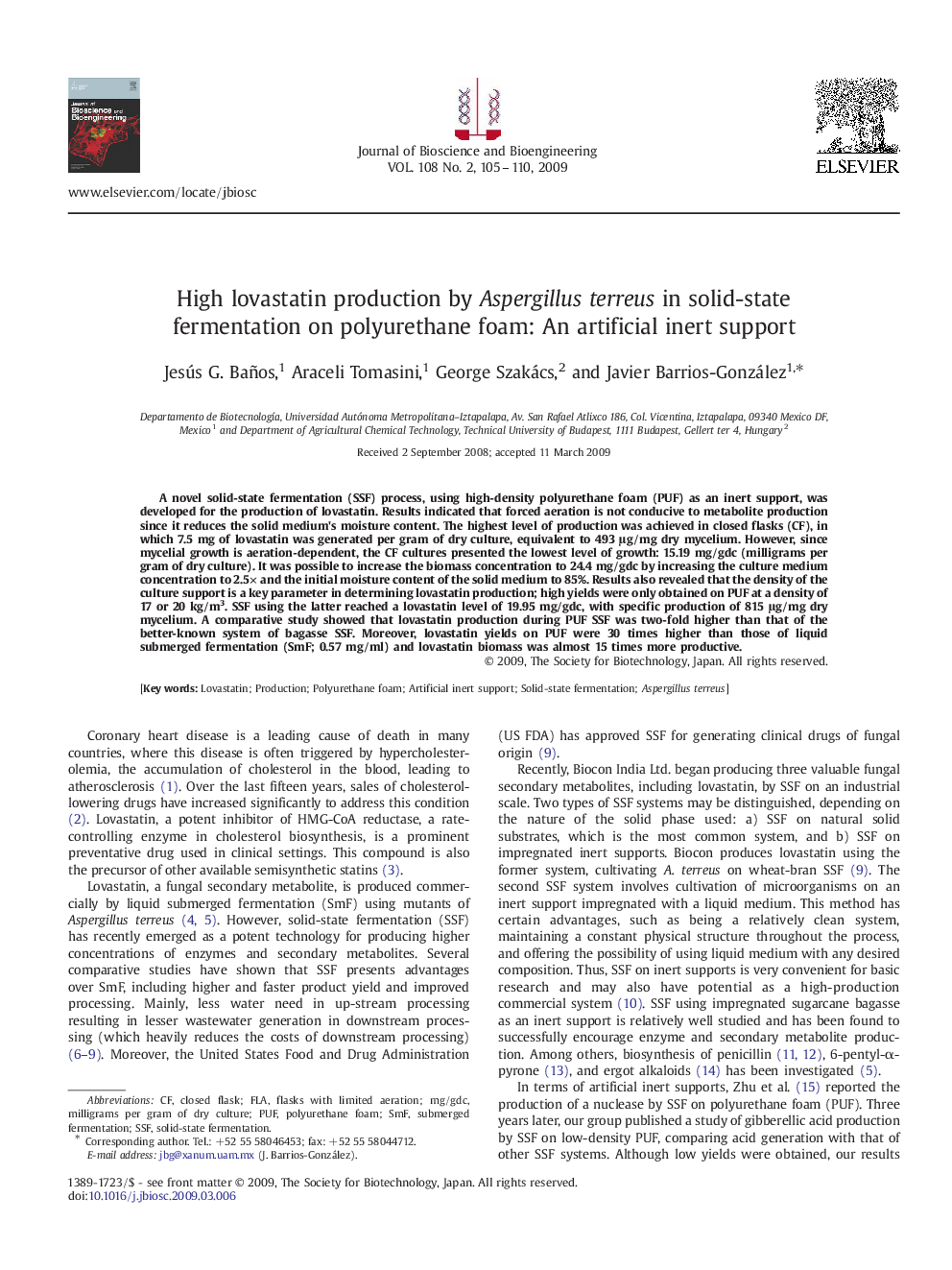| Article ID | Journal | Published Year | Pages | File Type |
|---|---|---|---|---|
| 22055 | Journal of Bioscience and Bioengineering | 2009 | 6 Pages |
A novel solid-state fermentation (SSF) process, using high-density polyurethane foam (PUF) as an inert support, was developed for the production of lovastatin. Results indicated that forced aeration is not conducive to metabolite production since it reduces the solid medium's moisture content. The highest level of production was achieved in closed flasks (CF), in which 7.5 mg of lovastatin was generated per gram of dry culture, equivalent to 493 μg/mg dry mycelium. However, since mycelial growth is aeration-dependent, the CF cultures presented the lowest level of growth: 15.19 mg/gdc (milligrams per gram of dry culture). It was possible to increase the biomass concentration to 24.4 mg/gdc by increasing the culture medium concentration to 2.5× and the initial moisture content of the solid medium to 85%. Results also revealed that the density of the culture support is a key parameter in determining lovastatin production; high yields were only obtained on PUF at a density of 17 or 20 kg/m3. SSF using the latter reached a lovastatin level of 19.95 mg/gdc, with specific production of 815 μg/mg dry mycelium. A comparative study showed that lovastatin production during PUF SSF was two-fold higher than that of the better-known system of bagasse SSF. Moreover, lovastatin yields on PUF were 30 times higher than those of liquid submerged fermentation (SmF; 0.57 mg/ml) and lovastatin biomass was almost 15 times more productive.
